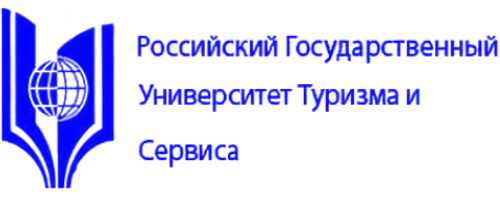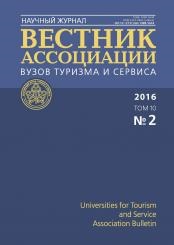Modern workbooks on teaching fiction translation do not fully embrace the social-cultural component of educational content, despite the state standard strict demand on seeing students mainly as an object of cultural dialog. According to this, a row of competence, possessing demands of preparing students that can use foreign language as an instrument of social-cultural communication, may be insufficient for forming skills in fiction translation. Due to this fact we have worked out and tested the model of forming skills in fiction translation using social-cultural approach among students of a linguistic university. The forming of translational social-cultural competence, which the totality of social and political, cultural and historical, demographic and everyday knowledge about the country of the language during the creation of identical translation version in accordance with cross-cultural equivalence level and the way of translation of social-cultural realias, is the result of education. The author has created two diagrams to demonstrate social-cultural changes on different levels of translational equivalence: one illustrates ways of translation of social-cultural realias typical for the proper level, the other shows how different groups of realias split on different levels of cross-cultural equivalence. Suggested model of education is based on teaching students fiction translation according to these diagrams; according to this model the process of education is real- ized according to the principle from simple to complicated, i.e. from formal equivalence level to descriptive. Taking into account the statistic analyses of experimental teaching results, it demonstrates the effectiveness of the proposed teaching model, we can conclude that using this model on teaching fiction translation process in linguistic university will help students to broaden their social-cultural database and embrace some skills in fiction translation.
principles of teaching, fiction translation, translational social-cultural competence, social-cultural education, level of social-cultural equivalence
1. Bolgova M.A., Podlegaev A.V., Transformation of higher education in the context of the supporting universities creation: the social and economic analysis. Vestnik Assotsiatsii vuzov turizma i servisa, 2016, no. 1, pp. 44-50. (In Russ).
2. Breus I.V., Course of translation in the field of professional communication. Voprosy prikladnoi lingvistiki, 2011, no. 5, pp. 63-72. (In Russ).
3. Breus I.V., Muravskaya O.N., Intercultural communication and translation. Pedagogicheskie nauki, 2016, no. 3 (78), pp. 12. (In Russ).
4. Bukovskii S.L., Litvinov A.V., Especially learning the special transfer of students of agricultural specialties. Vestnik Univer- siteta RAO, 2015, no. 5 (78), pp. 13-16. (In Russ).
5. Voevoda E.V., Cross-Cultural Communication in Multi-Ethnic Educational Space. Sovremennaya kommunikativistika, 2016, vol. 5, no. 3, pp. 24-28. (In Russ).
6. Gural’ S.K., The role of students project activity in developing communicative competence. Vestnik Tomskogo gosudarst- vennogo universiteta, 2006, no. 291, pp. 155-156. (In Russ).
7. Zvorykina T.I., Sil’cheva L.V., Gogaeva O.V., Advancing the quality of vocational education as the result of new generation standards’ realization. Vestnik Assotsiatsii vuzov turizma i servisa, 2016, no. 3, pp. 50-58. (In Russ).
8. Isaeva S.M., To the issue of implication the principle of level sociocultural equivalence in teaching fiction translation. Gumanitarnye i sotsial’nye nauki: setevoe izdanie, 2016, no. 4, pp. 83-90. (In Russ) Available at: http://elibrary.ru/item. asp?id=26637286.
9. Isaeva S.M., Collection of exercises for teaching literary translation: a practical guide. Мoscow: Pero, 2016, 54 p. (In Russ).
10. Isaeva S.M., Художественный перевод: учебно-методическое пособие. Мoscow: Pero, 2016, 67 p. (In Russ).
11. Kazieva D.A., Intercultural communication as receptive-interpretative activity of a linguistic personality. European sci- ence, 2016, no.1 (11), pp. 44-46. (In Russ).
12. Litvinov A.V., The Modern Pattern of the Competence for Professional Translators in the Context of Training Translators at Linguistic Universities of Russia. Voprosy prikladnoi lingvistiki, 2013, no. 10-11, pp. 66-76. (In Russ).
13. Novikova N.G., Kortunov V.V., Kirienkova Z.A., University student education of intercultural communication: method-ological aspects. Vestnik Assotsiatsii vuzov turizma i servisa, 2016, vol. 10, no. 1, pp. 60-65. (In Russ).
14. Novichkov N.V., On the concept of cultural policy as a social system. Vestnik Assotsiatsii vuzov turizma i servisa, vol. 9, 2015, no. 1, pp. 42-52. (In Russ).
15. Novichkov N.V., Freedom of Creation for Culture, Business, Innovation. Vestnik Assotsiatsii vuzov turizma i servisa, 2014, vol. 8, no. 2, pp. 91-95. (In Russ).
16. Passov E.I., Kuznetsova E.S., Principles of teaching foreign languages: a tutorial. Voronezh, NOU «Interlingva», 2002, 40 p. (In Russ).
17. Safonova V.V., Sokolova N.G., Problems of socio-cultural education in language pedagogy. Cultural aspects of language education. Collection of scientific papers. Moscow: Evroshkola, 1998, pp. 66-79. (In Russ).
18. Sokur E.A., Intercultural communication and English language. Simvol nauki, 2016, no. 2-3, pp. 96-99. (In Russ).
19. Flerov O.V., Egorov V.I., Intersection of cross-cultural communication and modern university education. APRIORI. Ceri- ya: Gumanitarnye nauki, 2016, no. 1, p. 40. (In Russ).
20. Khairullin M.B., Khairullina A.M., Intercultural communication in teaching foreign language. Nauchnoe obozrenie: gu- manitarnye issledovaniya, 2016, no. 3, pp. 12-16. (In Russ).
21. Khot’ko N.A., Intercultural students’ socialization in the process of acquiring foreign language communicative skills. Lingvokul’turnoe obrazovanie v sisteme vuzovskoi podgotovki spetsialista, 2016. Т. 1, no. 1 (9), pp. 205-210. (In Russ).
22. Cherkasova E.V., Makarova M.E., Intercultural competence as the key characteristic of the modern higher education. Nauka XXI veka: aktual’nye napravleniya razvitiya, 2016, no. 1-2, pp. 101-105. (In Russ).





